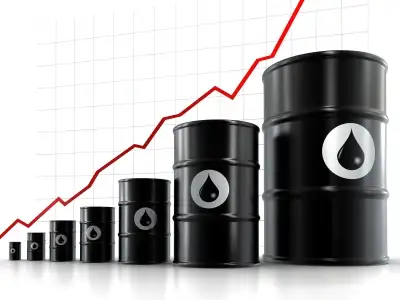
Remember that unprecedented push by no fewer than 12 of the largest U.S. airlines to prod Congress into [% 2631353 | | banning oil speculation %]?
The effort included mass emailings, a supporting website (StopOilSpeculationNow.com), and (it’s reasonable to assume) an extensive and expensive behind-the-scenes lobbying effort.
The airlines, reeling from the soaring prices of jet fuel, were looking for the cause of their misfortune and claimed to have found the culprit in commodities traders.
Their allegation: “Speculators buy up large amounts of oil and then sell it to each other again and again. A barrel of oil may trade 20-plus times before it is delivered and used; the price goes up with each trade and consumers pick up the final tab. Some market experts estimate that current prices reflect as much as $30 to $60 per barrel in unnecessary speculative costs.”
Always skeptical of the airlines’ motives, to say nothing of their analytical wherewithal, I wrote about the issue [% 2634374 | | here %], referencing a distinguished business and finance writer who argued that oil price speculation is not a significant contributor to the current high price of fuel. But his was a single voice raised against the roar of a coordinated, well-funded communications barrage.
Last week, the airlines’ blame game suffered a much more severe setback, with the publication of the Interim Report on Crude Oil by the Interagency Task Force on Commodity Markets.
The Task Force’s credentials are impressive. Headed up by the Commodity Futures Trading Commission, it also included experts from the Departments of Agriculture, Energy, and the Treasury, the Board of Governors of the Federal Reserve System, the Federal Trade Commission, and the Securities & Exchange Commission.
The Task Force’s approach to the question is refreshingly straightforward. If, they reasoned, speculators were bidding up the price of oil, an analysis of commodity speculators’ activity would reveal a cause-and-effect relationship: first a trade, then an increase in the price of oil.
In fact, no such relationship was discovered. “On the contrary, most speculative traders typically alter their positions following price changes, suggesting that they are responding to new information—just as one would expect in an efficiently operating market.”
The conclusion: “(T)he Task Force’s preliminary analysis to date does not support the proposition that speculative activity has systematically driven changes in oil prices.”
What, then, accounts for the current price of oil? “The Task Force’s preliminary assessment is that current oil prices and the increase in oil prices between January 2003 and June 2008 are largely due to fundamental supply and demand factors.”
Yep, supply and demand. The very same economic levers the airlines are trying furiously to pull in order to give themselves the pricing power required to raise fares and regain profitability.
So, according to a committee of experts, the airlines just plain got it wrong. Which raises the question of motive. Was the airlines’ misidentification of the locus of their industry’s central problem a case of intentional obfuscation or simply garden-variety wrongheadedness?
To answer that question, we’ll need yet another task force, issuing yet another report. Suggested title: “The Airlines—Evil, Stupid, or Both?”
We hand-pick everything we recommend and select items through testing and reviews. Some products are sent to us free of charge with no incentive to offer a favorable review. We offer our unbiased opinions and do not accept compensation to review products. All items are in stock and prices are accurate at the time of publication. If you buy something through our links, we may earn a commission.
Related
Top Fares From
Today's Top Travel Deals
Brought to you by ShermansTravel
Shop and Save with Country Inns...
Patricia Magaña
 Hotel & Lodging Deals
Hotel & Lodging Deals
$229 -- Chicago: Discounted Rates and...
Francesca Miele
 Hotel & Lodging Deals
$229+
Hotel & Lodging Deals
$229+
$188 -- Honolulu: Save on Oceanview...
Abigail Lamay
 Hotel & Lodging Deals
$188+
Hotel & Lodging Deals
$188+



